
Numenta On Intelligence
Numenta
Numenta On Intelligence is a monthly podcast about intelligence: how it works in the brain, what the key principles are, and how understanding those principles may be the fastest path to machine intelligence.
- 19 minutes 28 secondsA Thousand Brains by Jeff Hawkins - Part Three: Human Intelligence
In this final episode in the series, Jeff Hawkins, author of A Thousand Brains, talks with Christy Maver, VP of Marketing at Numenta, about the last section of his new book, Part Three: Human Intelligence. Jeff briefly discusses each chapter in this section, from why people create false beliefs to estate planning for humanity. They conclude with Jeff’s final thoughts about the book. #athousandbrains
Order A Thousand Brains here: https://www.amazon.com/Thousand-Brains-New-Theory-Intelligence/dp/1541675819/19 February 2021, 11:00 pm - 15 minutes 52 secondsA Thousand Brains by Jeff Hawkins - Part Two: Machine Intelligence
In this third episode in the series, Author Jeff Hawkins talks to VP Marketing Christy Maver about Part 2 of his new book, A Thousand Brains. Part Two: Machine Intelligence, covers how a new understanding of the brain can point the way to truly intelligent AI. Jeff talks about why today’s AI is not intelligent, what we can do to change that, and why we need not fear it. #athousandbrains
Order A Thousand Brains here: https://www.amazon.com/Thousand-Brains-New-Theory-Intelligence/dp/1541675819/19 February 2021, 10:00 pm - 13 minutes 28 secondsA Thousand Brains by Jeff Hawkins - Part One: A New Understanding of the Brain
In this episode, author Jeff Hawkins talks to Numenta VP of Marketing Christy Maver about Part One of his new book A Thousand Brains. Part One: A New Understanding of the Brain unpacks the primary principles behind his groundbreaking Thousand Brains Theory of Intelligence. He highlights two of the key discoveries that led to the theory’s creation and how this powerful new framework lets us look at some of neuroscience’s problems with a new lens. #athousandbrains
Order A Thousand Brains here: https://www.amazon.com/Thousand-Brains-New-Theory-Intelligence/dp/1541675819/19 February 2021, 9:00 pm - 8 minutes 25 secondsA Thousand Brains by Jeff Hawkins - Introduction
A Thousand Brains: A new theory of intelligence by Jeff Hawkins tackles one of life’s greatest mysteries: what is intelligence and how does the brain create it? In this episode, Jeff talks to Numenta VP of Marketing Christy Maver about the book, offering a preview of what readers can expect, why he wrote the book, and what each of the book’s three sections cover. (Part 1: A New Understanding of the Brain, Part 2: Machine Intelligence, and Part 3: Human Intelligence.) #athousandbrains
Order A Thousand Brains here: https://www.amazon.com/Thousand-Brains-New-Theory-Intelligence/dp/1541675819/19 February 2021, 8:00 pm - 57 minutes 29 secondsEpisode 14: Interview with Florian Fiebig on Hebbian Learning Networks
Matt Taylor interviews Florian Fiebig, PhD, a Visiting Scientist at Numenta.
3 December 2019, 1:00 pm - 28 minutes 38 secondsEpisode 13: Subutai Ahmad on Applying HTM Ideas to Deep Learning
We're back!
After a summer hiatus, we are back with a new episode. Host Matt Taylor talks to Numenta VP of Research Subutai Ahmad about the effort he has been leading in applying Numenta research and HTM principles to deep learning systems.
This episode is also available as a video.17 October 2019, 7:00 pm - 46 minutes 58 secondsEpisode 12: Conversation with Jeff Hawkins - On Defining Intelligence
In this episode, host Matt Taylor asks Numenta co-founder Jeff Hawkins to define intelligence. Jeff outlines 3 components of intelligence, and revisits them through the lens of the Thousand Brains theory of Intelligence.
According to Jeff, "The bottom line is that Intelligence is only as good as the model that you build."22 May 2019, 8:00 am - 22 minutes 49 secondsEpisode 11: Conversation with Subutai Ahmad – On COSYNE
Host Matt Taylor interviews Numenta VP Research Subutai Ahmad about his experience at this year's COSYNE conference. They discuss:
- What COSYNE is all about
- Why Numenta attends
- What Numenta presented
Then Matt dives into the content and asks Subutai about- the difference between tonic and burst modes
- how cells in the cortex control modes in the thalamus
- why would cortex control modes of thalamus
- how TC cells detect precise sparse codes from L6
- what the thalamus is providing in the FF input to L6
- the hypotheses suggested by the poster
9 May 2019, 8:00 am - 28 minutes 50 secondsEpisode 10: Conversation with Jeff Hawkins – On the Thalamus
In this episode, Matt Taylor, Numenta Open Source Community Manager, interviews Numenta Co-founder Jeff Hawkins about some of his latest research ideas. In particular, they discuss the thalamus.
10 April 2019, 5:00 am - 26 minutes 26 secondsEpisode 9: Interview with a Neuroscientist - Konrad Kording Part 2
Dr. Konrad Kording is a professor at University of Pennsylvania, known for his contributions to the fields of motor control, neural data methods, and computational neuroscience. He runs the Kording Lab, or K-Lab, which focused on computational neuroscience early on and now focuses on causality in data science applications. His lab has made an impact across many fields over time, including Bayesian brains, causal effects in human behavior, and uncertainty in the brain.
In this episode, Matt Taylor interviews Dr. Kording over Skype about motor representations in the brain, intentionality, time-warping in neurons, and causality. A video of this episode is available on the HTM School YouTube channel.23 February 2019, 1:00 am - 24 minutes 10 secondsEpisode 8: Interview with a Neuroscientist - Konrad Kording Part 1
Dr. Konrad Kording is a professor at University of Pennsylvania, known for his contributions to the fields of motor control, neural data methods, and computational neuroscience. He runs the Kording Lab, or K-Lab, which focused on computational neuroscience early on and now focuses on causality in data science applications. His lab has made an impact across many fields over time, including Bayesian brains, causal effects in human behavior, and uncertainty in the brain.
In this episode, Matt Taylor interviews Dr. Kording over Skype to discuss illusions of perception, how uncertainty might be represented in the brain, and more. A video of their conversation is available on the HTM School YouTube channel.24 January 2019, 8:00 am - More Episodes? Get the App
- http://www.numenta.com
- en-us
Your feedback is valuable to us. Should you encounter any bugs, glitches, lack of functionality or other problems, please email us on [email protected] or join Moon.FM Telegram Group where you can talk directly to the dev team who are happy to answer any queries.
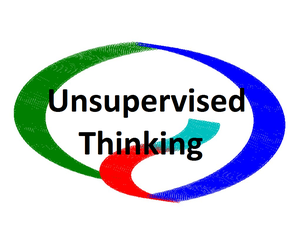 Unsupervised Thinking
Unsupervised Thinking
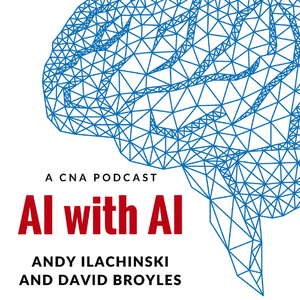 AI with AI: Artificial Intelligence with Andy Ilachinski
AI with AI: Artificial Intelligence with Andy Ilachinski
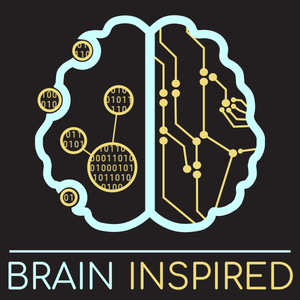 Brain Inspired
Brain Inspired
 Eye On A.I.
Eye On A.I.
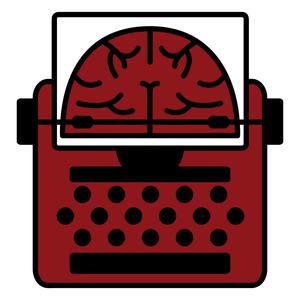 NeuwriteWest
NeuwriteWest
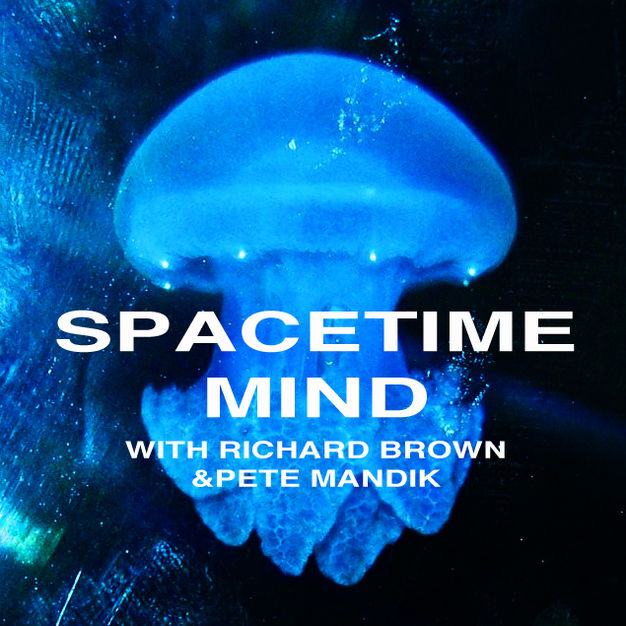 Blog - Space Time Mind
Blog - Space Time Mind